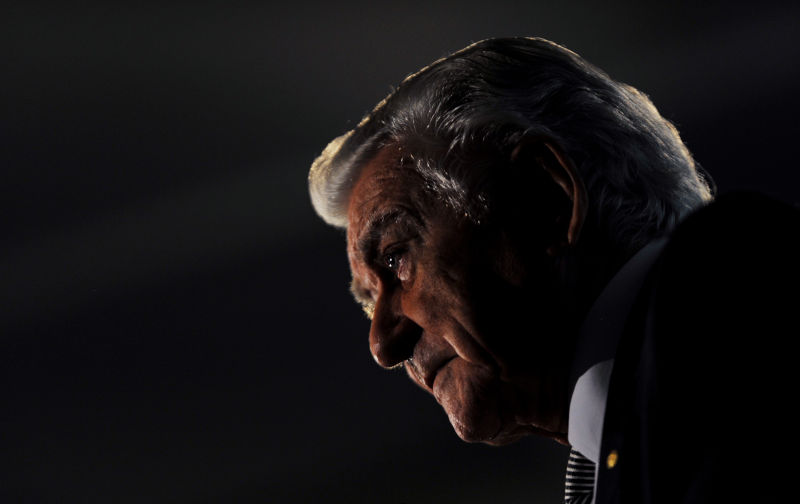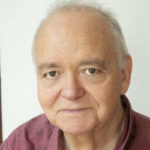Although ASIO dropped the intercept on Labor’s former national secretary David Combe’s phone after alleged KGB officer Valeriy Ivanov left Australia, Prime Minister Bob “Hawke’s interest in what had already transpired, increased dramatically”. Hawke suddenly asked to listen to the Combe-Ivanov tapes. After Hawke had listened for an hour and a half, “The Prime Minister believed that Bushfowl [the codename for the ASIO operation] showed a much closer involvement of Brian Toohey with Ivanov via EPIC [Combe] than recognised before”….
Not all ASIO directors are zealots. Its director in the 1980s, Harvey Barnett, was far more restrained than the authors of the third volume of the official ASIO history who sided with Bob Hawke as Prime Minister in 1983. Hawke wanted ASIO to take a much tougher line than Barnett against Labor’s former national secretary David Combe who was trying to build a client base as a lobbyist. He had dinner at the home of an alleged KGB officer Valeriy Ivanov to try to become a consultant on trade to the Soviets. Ivanov should’ve known ASIO could bug his home, but not every spy is a genius.
Once Ivanov became involved, cabinet agreed with Hawke to cut off all contact between Combe and ministers. It also expelled Ivanov. The official history records that both Bill Hayden, as foreign minister and Gareth Evans as Attorney General, weren’t convinced Combe had done anything that might constitute a “viable charge of impropriety let alone anything worse”. Hayden did not believe the expulsion of Ivanov was justified but let it proceed. Evans later told the authors of the official history that the decision to “blacklist” Combe was “almost certainly wrong and the relationship between Combe and Ivanov was probably never a risk to national security.”
Barnett’s position was that nothing more needed to be done once Ivanov was expelled and Combe blackballed. The authors of the third volume, John Blaxland and Rhys Crawley strongly disagreed with Barnett’s decision not to treat Combe as a “target” but as someone who he said deserved “the benefit of every doubt”. Which is no more than how it should be in a liberal democracy. Barnett told me after retiring that he’d “passed the ball to Hawke who kicked it out of the ground”.
The official history supported Hawke’s decision that ASIO must compile a detailed report on Combe. Although ASIO dropped the intercept on Combe’s phone after Ivanov left, the third volume said, “Hawke’s interest in what had already transpired, increased dramatically”. Hawke suddenly asked to listen to the Combe-Ivanov tapes which he did on May 8. The third volume said that after Hawke had listened for an hour and a half, “The Prime Minister believed that Bushfowl [the codename for the ASIO operation] showed a much closer involvement of Brian Toohey with Ivanov via EPIC [Combe] than recognised before”.
According to the third volume, Combe had earlier told Ivanov he would be getting some documents about the CIA from me, which he would give to Ivanov. Gareth Evans said these could be newspaper articles. He was right. As a journalist, if I get something newsworthy I publish it.
Hawke’s claim about my being close to Ivanov was false. The first I’d heard of Ivanov was when Combe told me the government had cut off all contact with him. So why was Hawke so interested in this hour and a half of the many hours of taped conversations involving Combe and Ivanov and why had someone directed him to this section?
The most likely answer is that shortly before Hawke made his false accusation about my involvement with Ivanov, Combe told me about an alleged aspect of Hawke’s behaviour that was worse than anything Combe supposedly did.
Combe said the backdrop was that he and Hawke caught up in San Francisco on their way to a socialist international conference in Vancouver in 1978. He said he was present when a Mafia hit man called Jimmy (the Weasel) Fratianno supplied Hawke with very young prostitutes. At the time, Fratianno was a high-ranking mobster involved with the Teamsters Union. Combe told me that Peter Ables, who headed the TNT transport company, asked the Teamsters to provide the prostitutes. He would have been angry with Combe for telling me about what happened in San Francisco.
Combe told others what he told me. It could easily have got back to Hawke who would have been keen to damage Combe as a security risk and to distort transcripts to smear me as closely involved with Ivanov.
Hawke’s concern for Combe’s alleged breach of national security sat uneasily with his own potentially compromising behaviour. He did not declare Ables’ gift to him in San Francisco to the cabinet, or to ASIO. Despite Paul Keating’s objections while Treasurer, Hawke put Abeles on the Reserve Bank Board. That sometimes gave him access to sensitive financial information.
After losing the prime ministership to Keating, Hawke became a very high paid consultant for his advice in China and elsewhere – much more than Combe would have got.
Brian Toohey has been a columnist with the Australian Financial Review. He has also written for The Nikkei Asia Review, The West Australian, The Sunday Age and other publications. He was editor of The National Times and a Canberra and Washington correspondent for AFR. He is the author or co-author of four books: Oyster: The Story of the Australian Secret Intelligence Service; Tumbling Dice: The Story of Modern Economic Policy; The Book of Leaks and The Winchester Scandal. Among other subjects, he has written extensively about national security policy since 1973.

